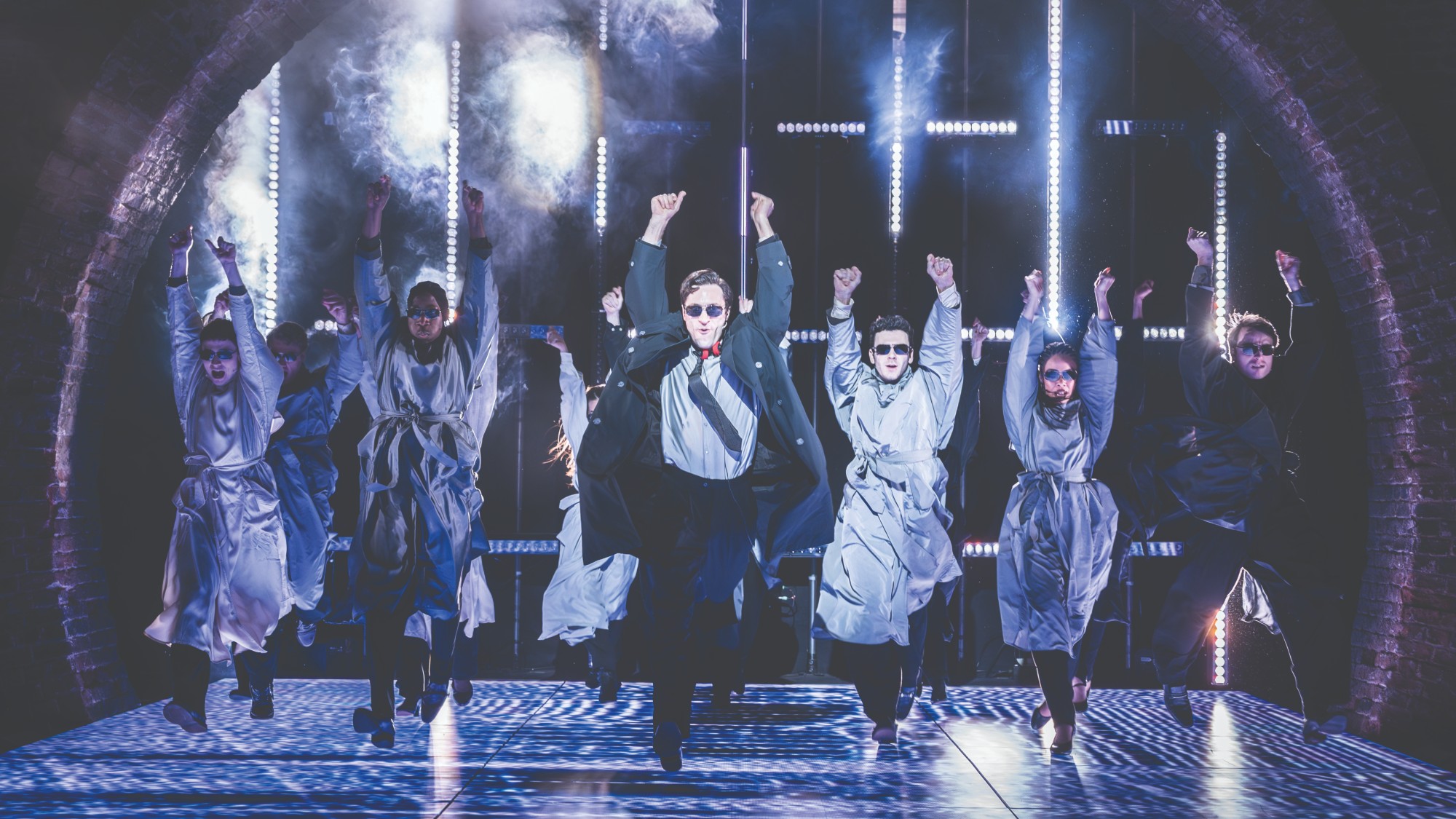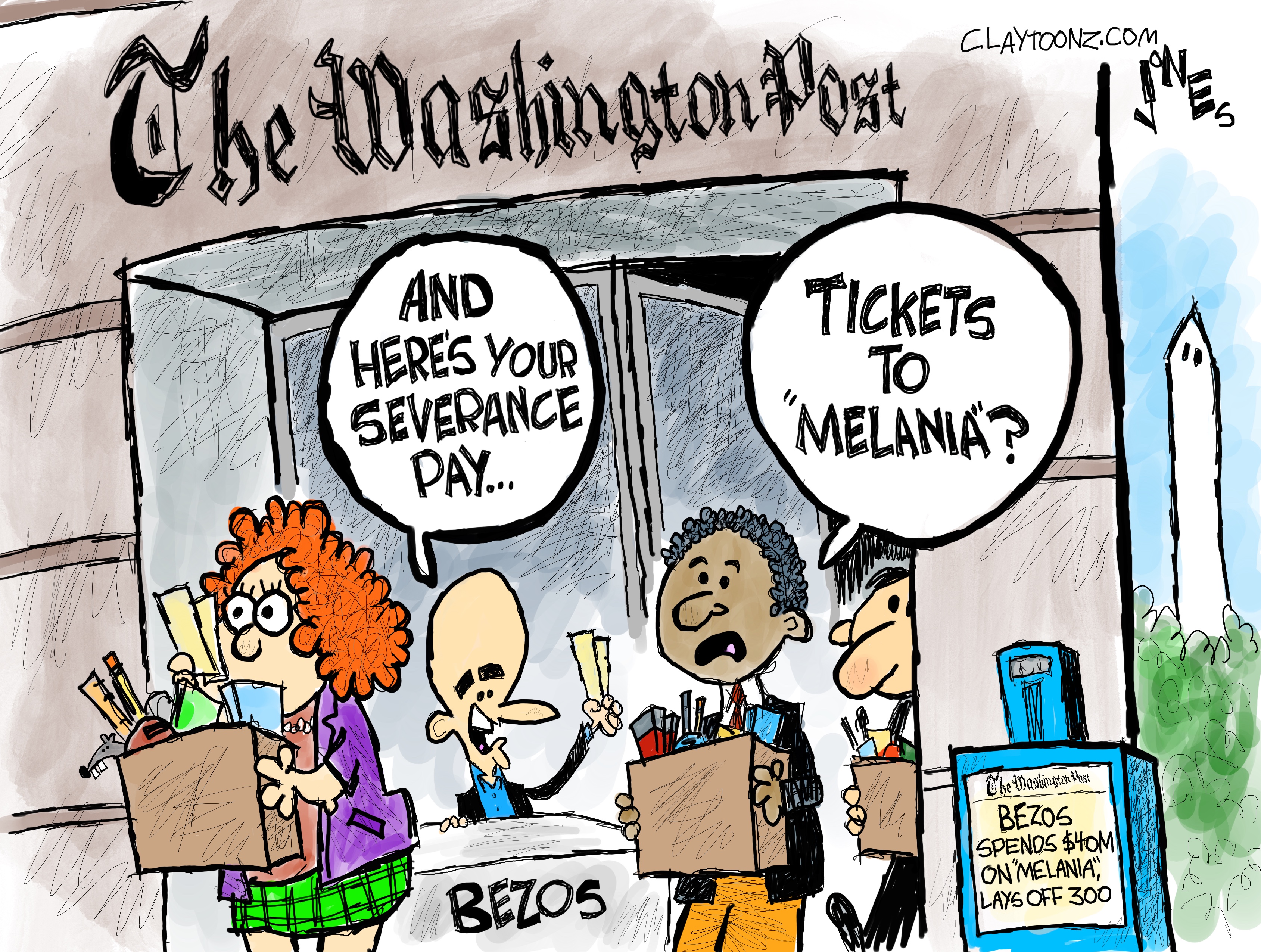Obama and McCain: What Europe's vote means
How Americans should see Obamania overseas
A free daily email with the biggest news stories of the day – and the best features from TheWeek.com
You are now subscribed
Your newsletter sign-up was successful
What happened
Barack Obama arrived in Berlin Thursday for the European leg of a world tour designed to burnish his foreign-policy credentials. His first stop was Berlin, where a huge crowd is expected to show up for a speech in which he will call for greater cooperation between the U.S. and Europe. (Reuters)
What the commentators said
The Week
Escape your echo chamber. Get the facts behind the news, plus analysis from multiple perspectives.

Sign up for The Week's Free Newsletters
From our morning news briefing to a weekly Good News Newsletter, get the best of The Week delivered directly to your inbox.
From our morning news briefing to a weekly Good News Newsletter, get the best of The Week delivered directly to your inbox.
Obama conquered Europe before he arrived, said Arielle Thedrel in the French daily Le Figaro (translation help). In Germany, France, and Great Britain, people love him as much as they hate George W. Bush, and see him as the second coming of John F. Kennedy. “Europe has already voted for Obama.”
That's precisely why “Obama's stop in Berlin will be the perfect high point for his rockstar world tour,” said Cameron Abadi in The New Republic’s The Plank blog. The hero’s welcome he’ll receive will improve his chances at winning the presidency by showing that he can deal with the world. That will seal the success of a trip that was always more about “gravitas than political substance.”
If Obama’s European jaunt has any impact on American voters, said Investor’s Business Daily in an editorial, it should steer them toward John McCain. Europeans prefer the Democrat Obama over his GOP rival because he “espouses the moral equivalency of nations, rather than importance of U.S. leadership,” which goes over big in places where people "loathe much of what America stands for.”
Actually, the excitement generated by Obama is a good sign, no matter who wins the presidency, said Jay Bookman in The Atlanta Journal-Constitution. It suggests that “the damage to our reputation and moral authority” over the last few years “does not need to be permanent,” because the world is still hungry for leadership by the America it once knew.
A free daily email with the biggest news stories of the day – and the best features from TheWeek.com
-
 Nan Goldin: The Ballad of Sexual Dependency – an ‘engrossing’ exhibition
Nan Goldin: The Ballad of Sexual Dependency – an ‘engrossing’ exhibitionThe Week Recommends All 126 images from the American photographer’s ‘influential’ photobook have come to the UK for the first time
-
 American Psycho: a ‘hypnotic’ adaptation of the Bret Easton Ellis classic
American Psycho: a ‘hypnotic’ adaptation of the Bret Easton Ellis classicThe Week Recommends Rupert Goold’s musical has ‘demonic razzle dazzle’ in spades
-
 Political cartoons for February 6
Political cartoons for February 6Cartoons Friday’s political cartoons include Washington Post layoffs, no surprises, and more
-
 The billionaires’ wealth tax: a catastrophe for California?
The billionaires’ wealth tax: a catastrophe for California?Talking Point Peter Thiel and Larry Page preparing to change state residency
-
 Bari Weiss’ ‘60 Minutes’ scandal is about more than one report
Bari Weiss’ ‘60 Minutes’ scandal is about more than one reportIN THE SPOTLIGHT By blocking an approved segment on a controversial prison holding US deportees in El Salvador, the editor-in-chief of CBS News has become the main story
-
 Has Zohran Mamdani shown the Democrats how to win again?
Has Zohran Mamdani shown the Democrats how to win again?Today’s Big Question New York City mayoral election touted as victory for left-wing populists but moderate centrist wins elsewhere present more complex path for Democratic Party
-
 Millions turn out for anti-Trump ‘No Kings’ rallies
Millions turn out for anti-Trump ‘No Kings’ ralliesSpeed Read An estimated 7 million people participated, 2 million more than at the first ‘No Kings’ protest in June
-
 Ghislaine Maxwell: angling for a Trump pardon
Ghislaine Maxwell: angling for a Trump pardonTalking Point Convicted sex trafficker's testimony could shed new light on president's links to Jeffrey Epstein
-
 The last words and final moments of 40 presidents
The last words and final moments of 40 presidentsThe Explainer Some are eloquent quotes worthy of the holders of the highest office in the nation, and others... aren't
-
 The JFK files: the truth at last?
The JFK files: the truth at last?In The Spotlight More than 64,000 previously classified documents relating the 1963 assassination of John F. Kennedy have been released by the Trump administration
-
 'Seriously, not literally': how should the world take Donald Trump?
'Seriously, not literally': how should the world take Donald Trump?Today's big question White House rhetoric and reality look likely to become increasingly blurred